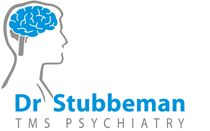
Tag Archives: rTMS


Tinitus: Are concerts and headphones taking their toll
You know that ringing in your ear you get after a particularly loud rock concert? All those screaming guitar solos, high-pitched synths and amp feedback buzzing around in your head hours after the concert is over. And that’s just for the band. It’s even louder for the audience, who get the full brunt of the PA system (well, they’d better get the full brunt or you’re not doing your rock star job).
Probing Corticospinal Recruitment Patterns and Functional Synergies with Transcranial Magnetic Stimulation
Objective: The aim of this study was to probe functional synergies of forearm muscles with transcranial magnetic stimulation by harnessing the convergence and divergence of the corticospinal output.
Innovations in neuroimaging lead to important medical applications to aid clinicians
The current special issue of Technology and Innovation, Journal of the National Academy of Inventors - is devoted to the evolution of neuroimaging technology, with seven articles chronicling the latest advances in this critical area.
New clinical trial investigates non-invasive treatment for depression and bipolar disorder at Black Dog Institute
TDCS is a very mild form of brain stimulation. The stimulation is painless and is given when a person is fully awake and alert with the stimulation session lasting 30 minutes.
Noninvasive Brain Stimulation Helps Treat Cocaine Addiction
Early results suggest that repetitive transcranial magnetic brain stimulation (rTMS) reduces both substance use and cravings in cocaine addicts, offering hope of a novel medical treatment for patients with this addiction.
TMS Health Education Announces The Advanced Transcranial Magnetic Stimulation Symposium
SACRAMENTO, CA, December 23, 2015 /satPRnews.com/ — TMS Health Education, which offers accredited courses from the world’s leaders in Transcranial Magnetic Stimulation (TMS) announced that it will be hosting the first-ever Advanced TMS Symposium.
Your Brain Recovers Memories Faster Than the Blink of an Eye
Using a brain scanner, scientists have discovered that memories can be recovered in just a tenth of a second - around a third of the time needed to blink. Previous research had estimated this at around five tenths of a second. The researchers also found retrieval can be obstructed if the person is subjected to repetitive Transcranial Magnetic Stimulation (rTMS), in which a magnetic coil is placed on their head.
